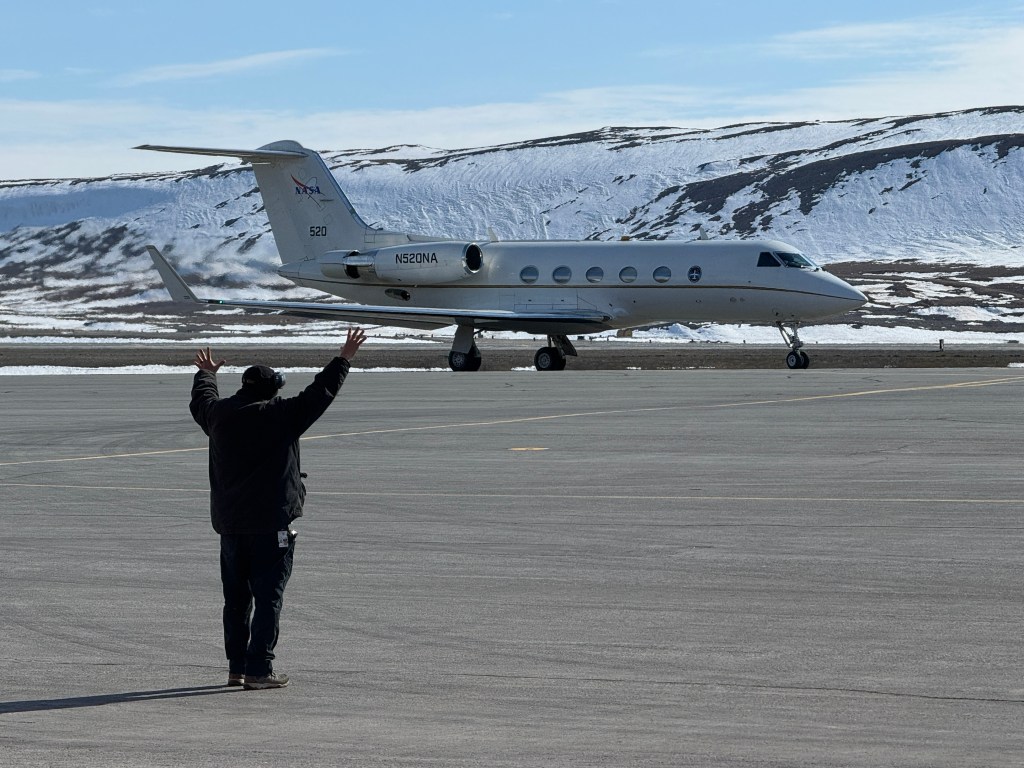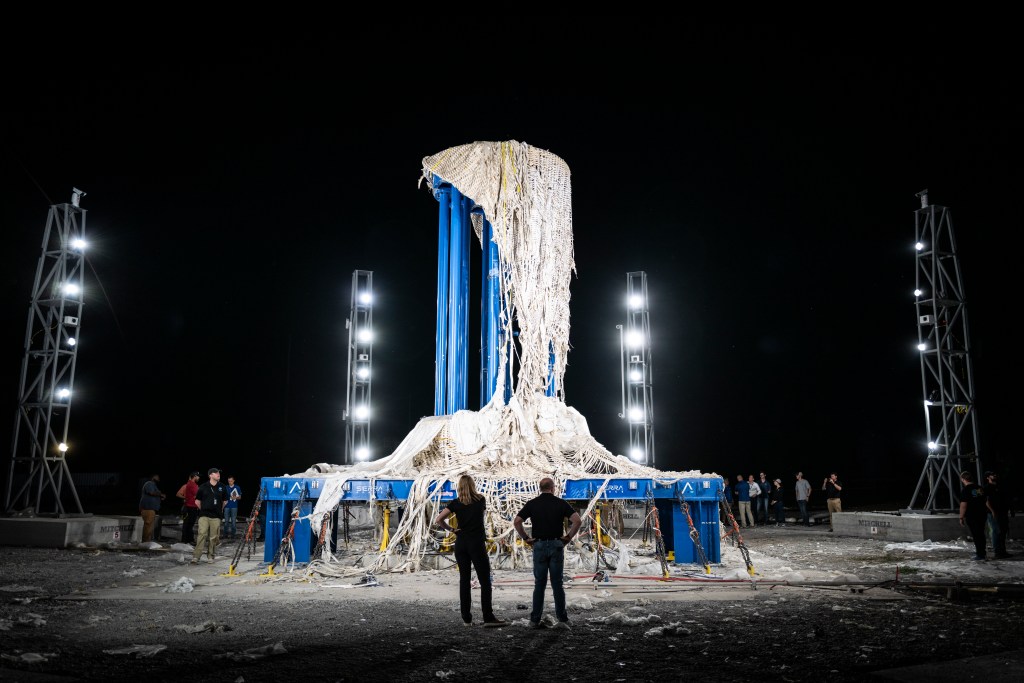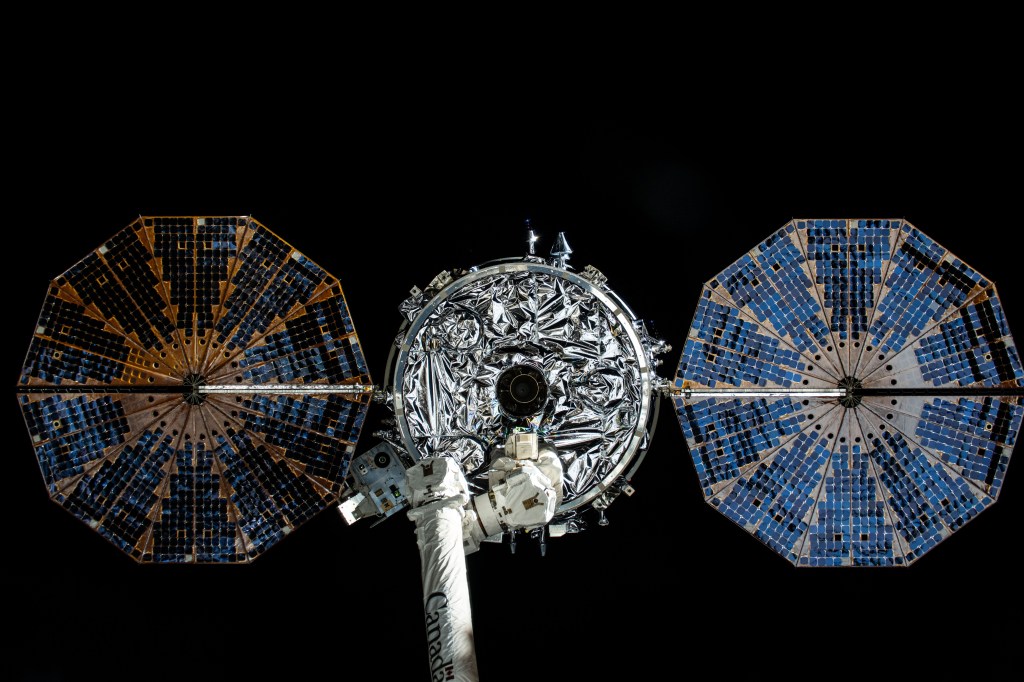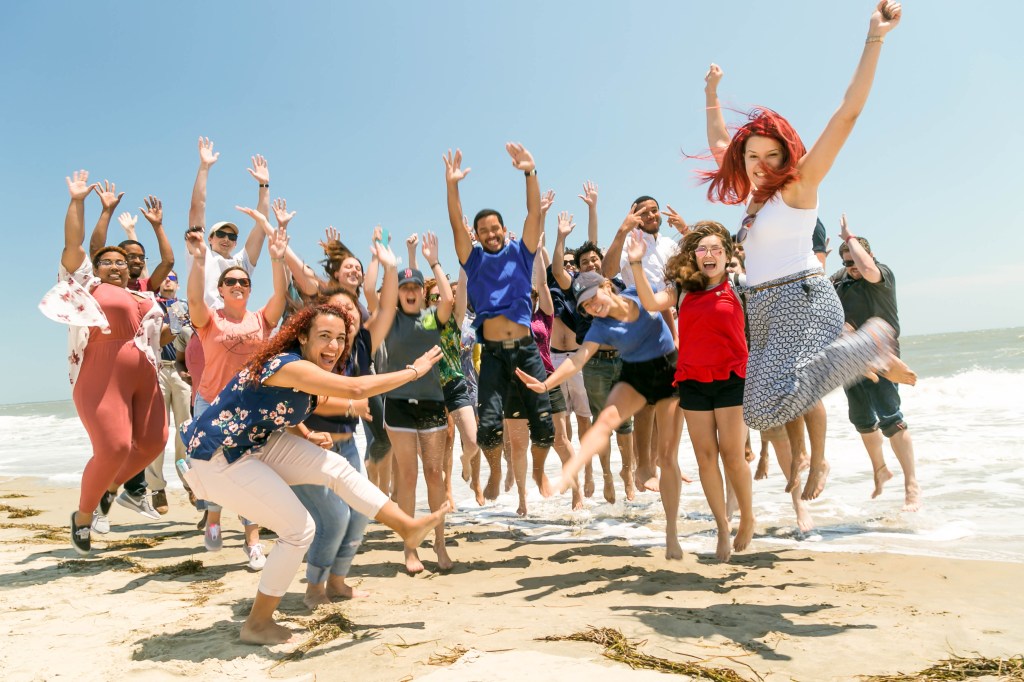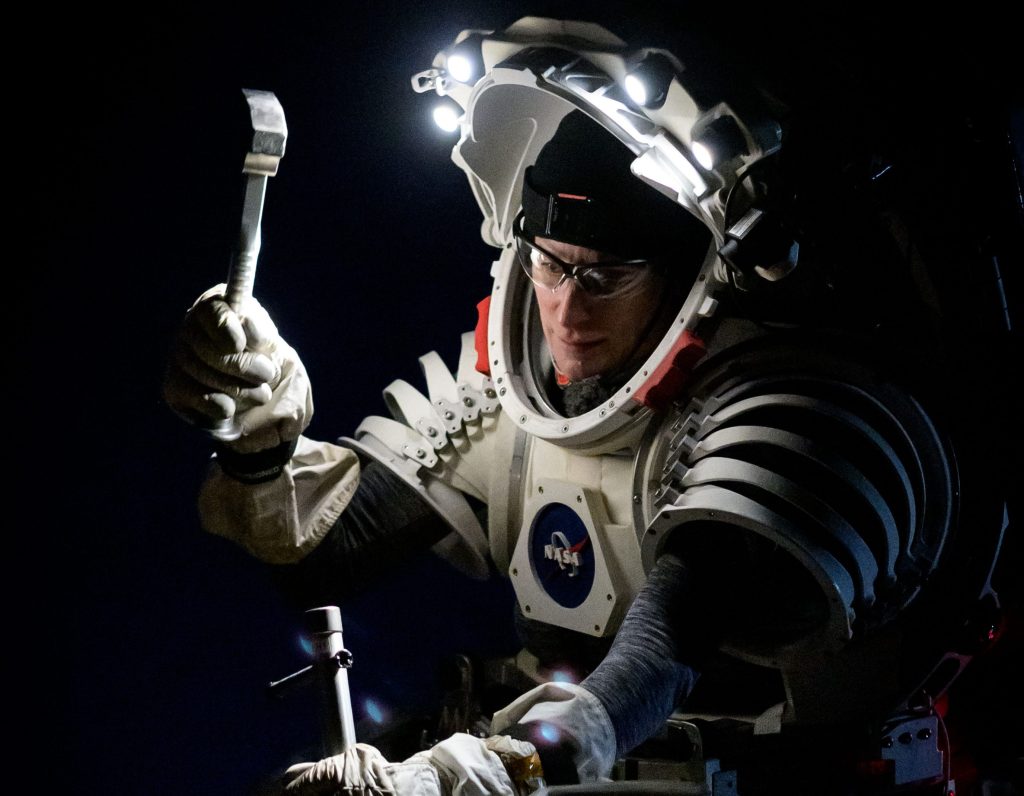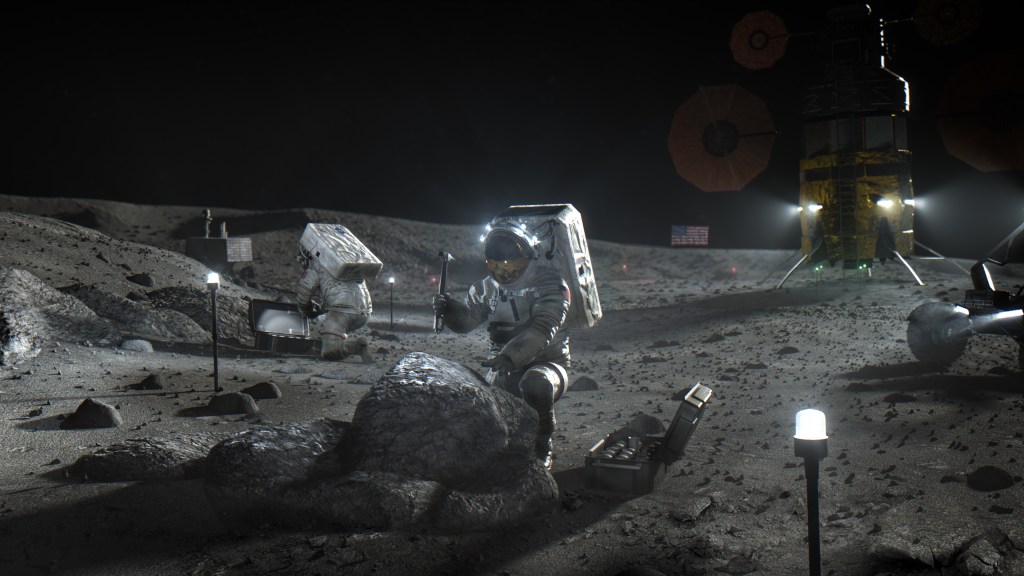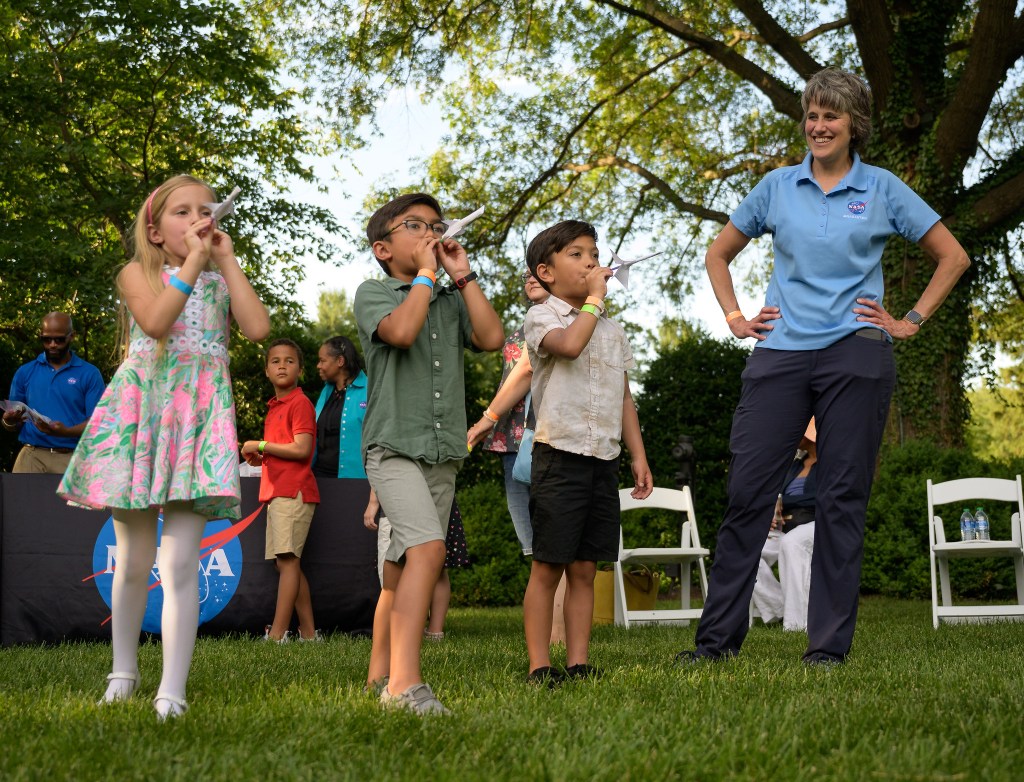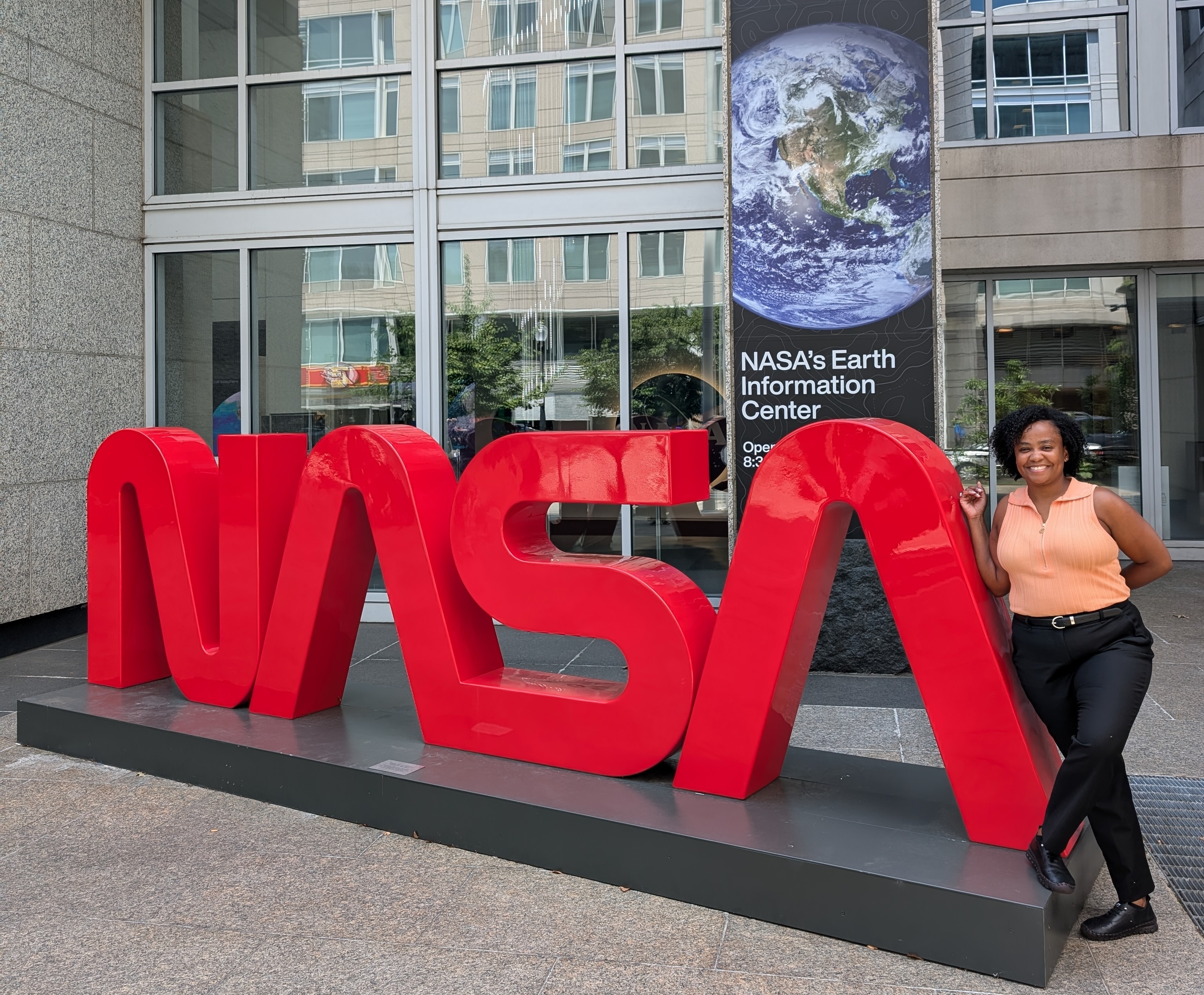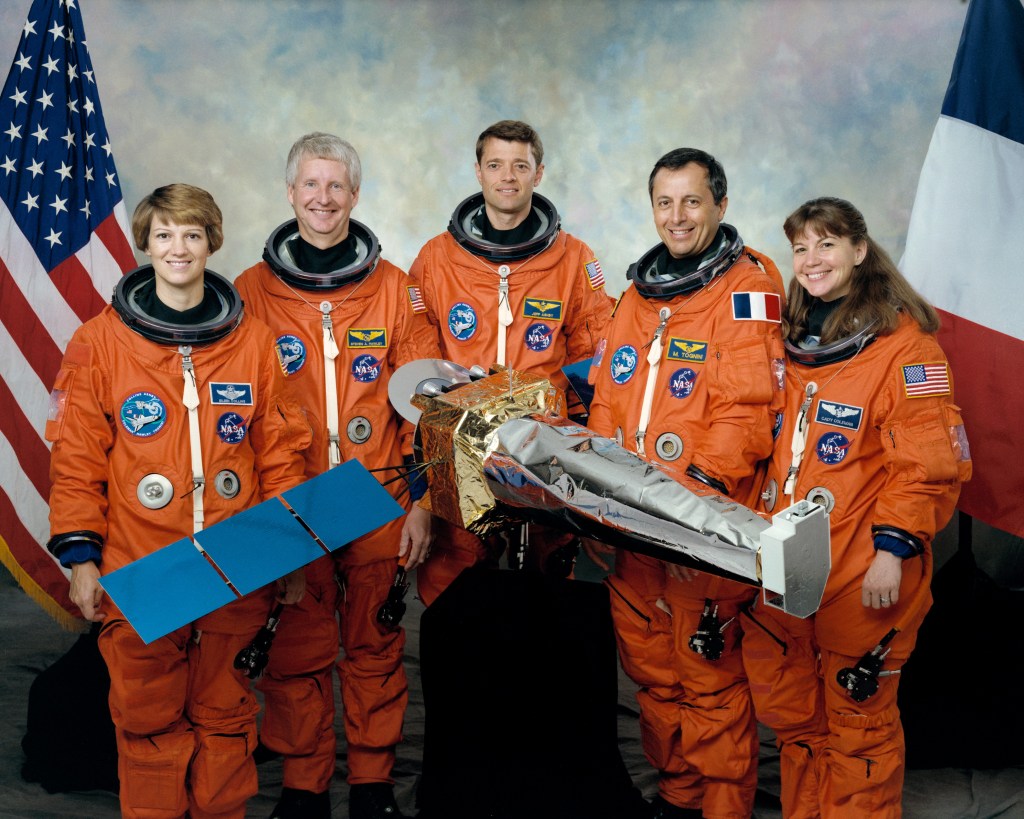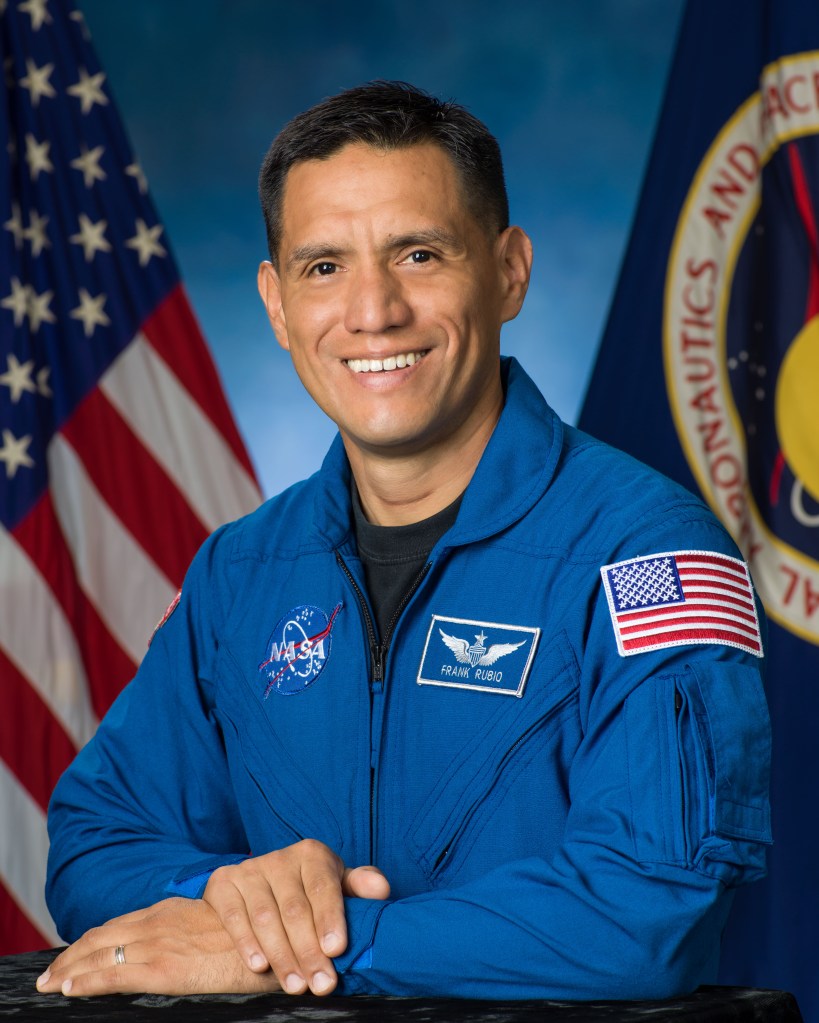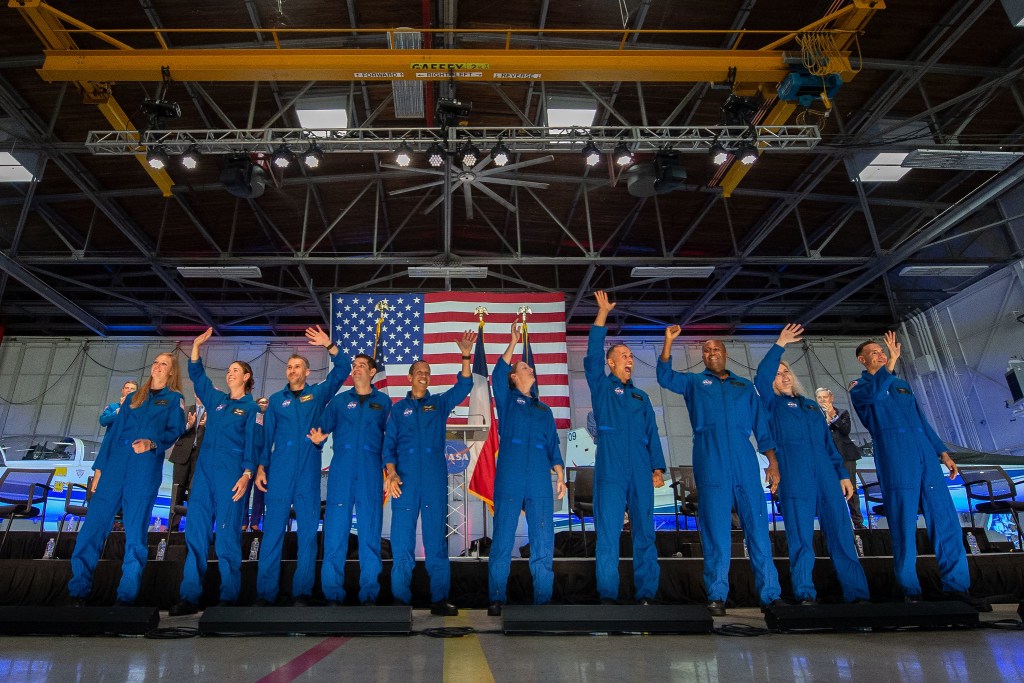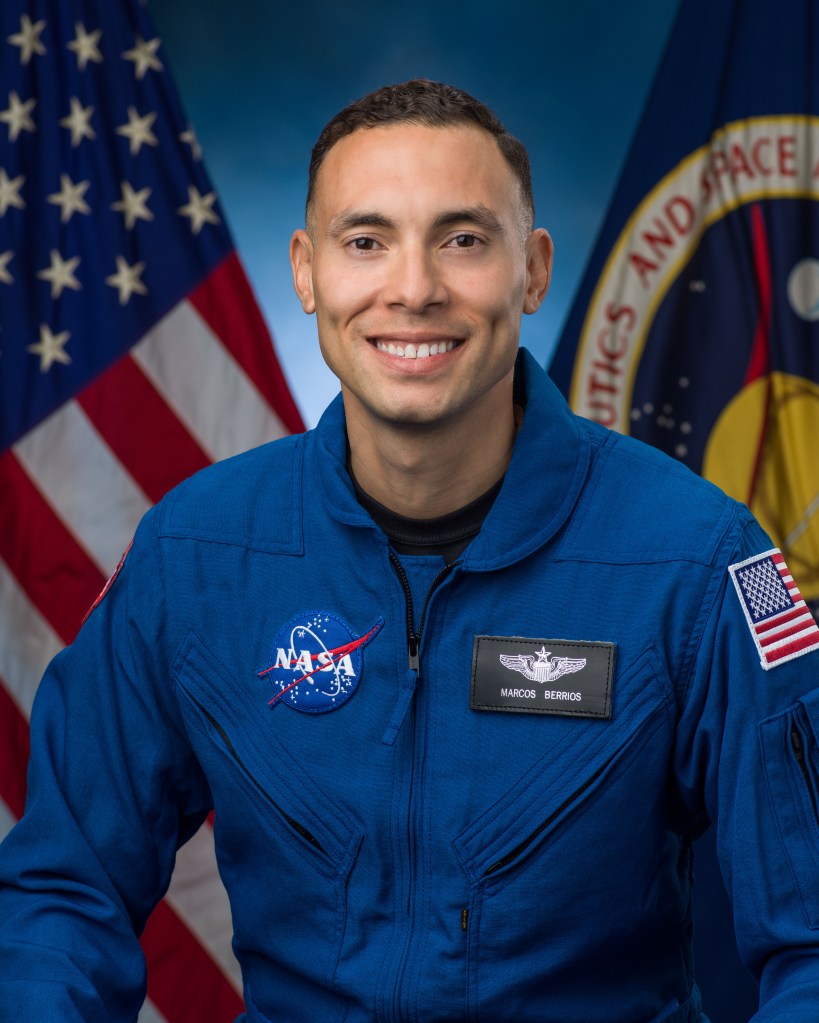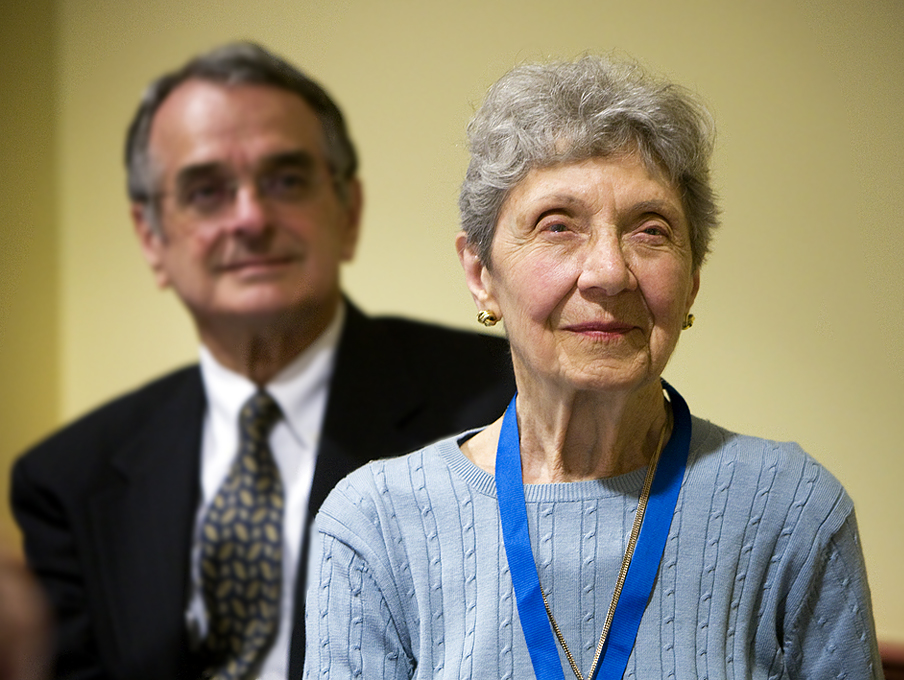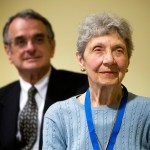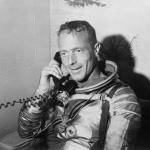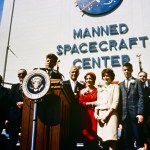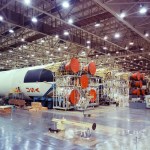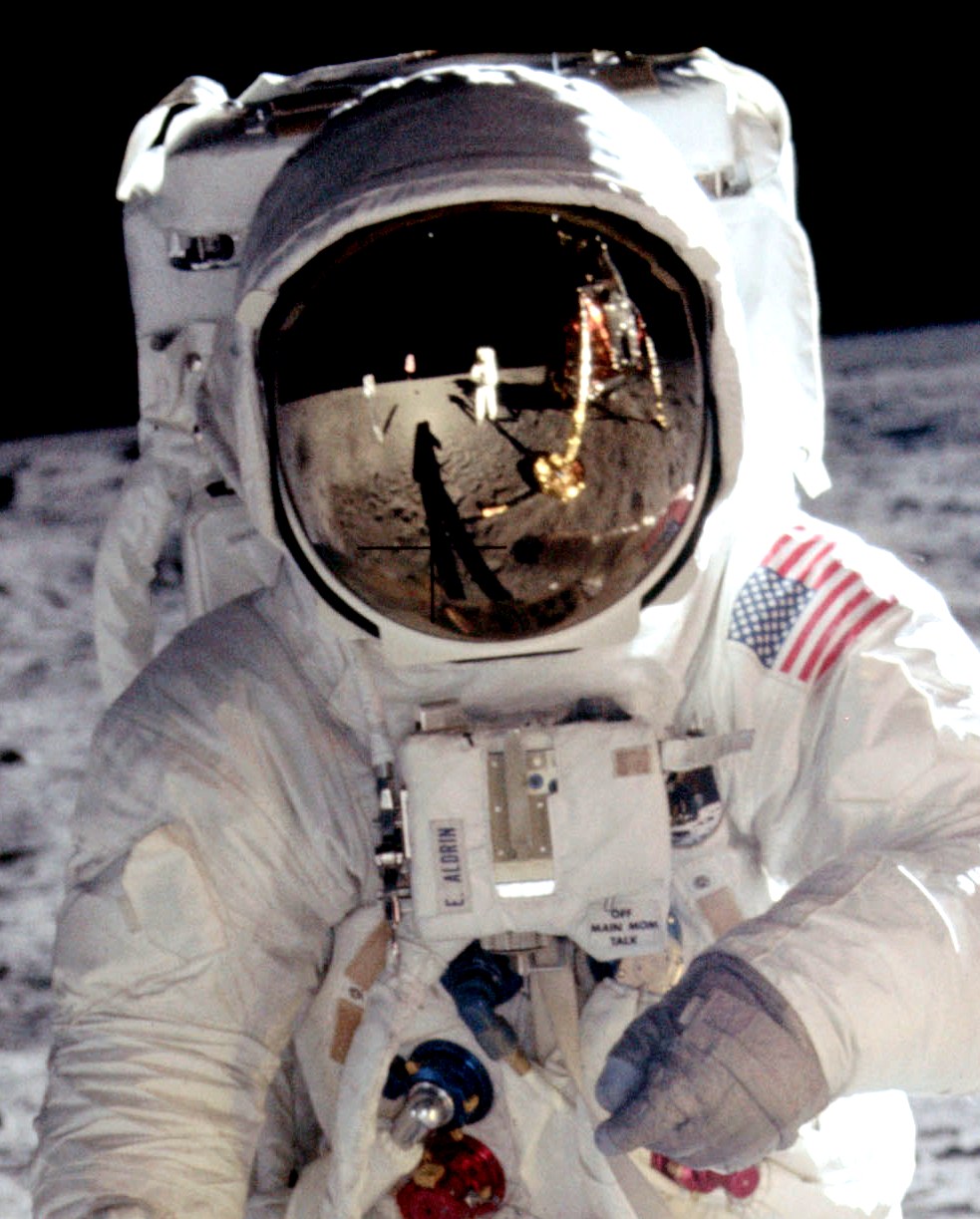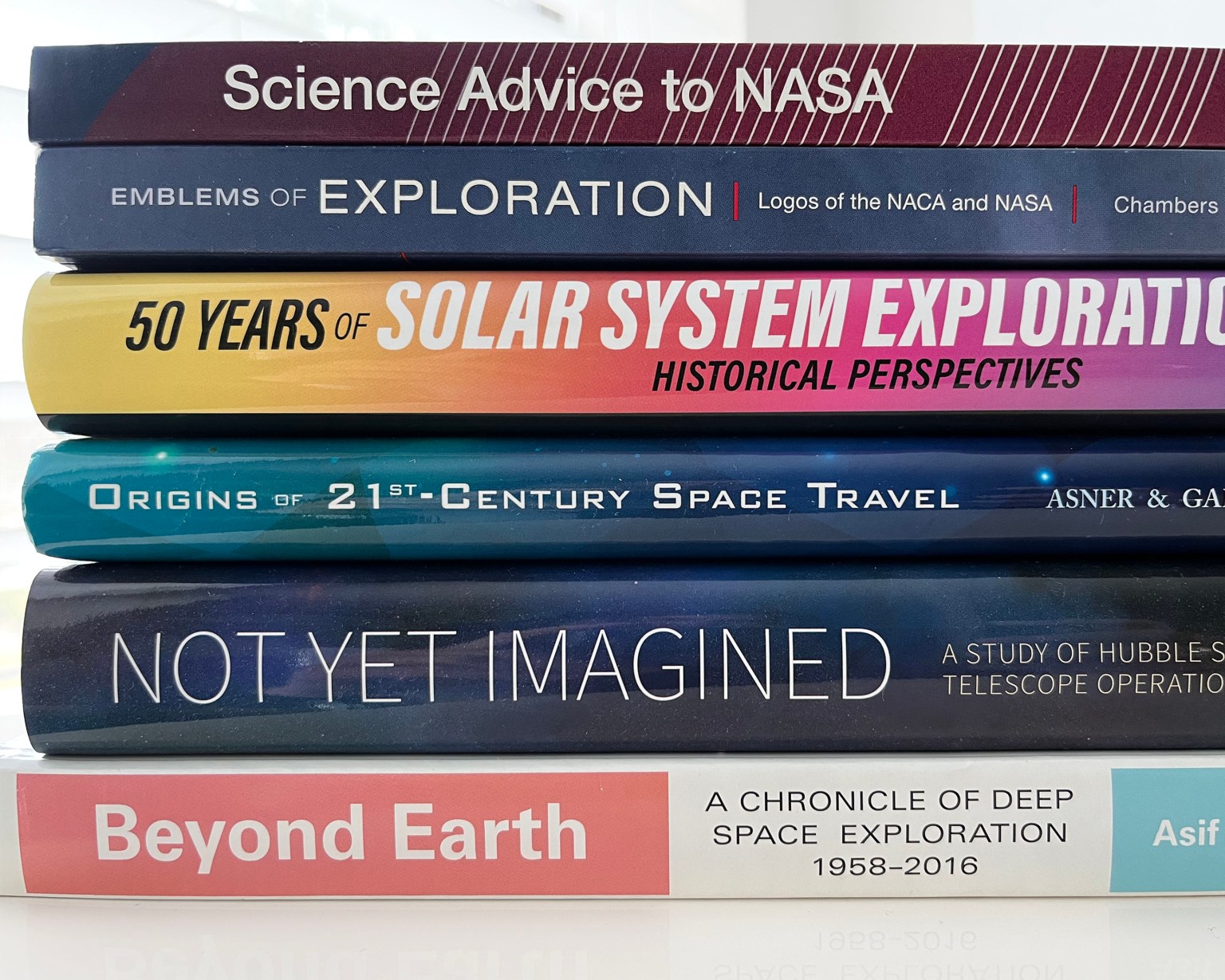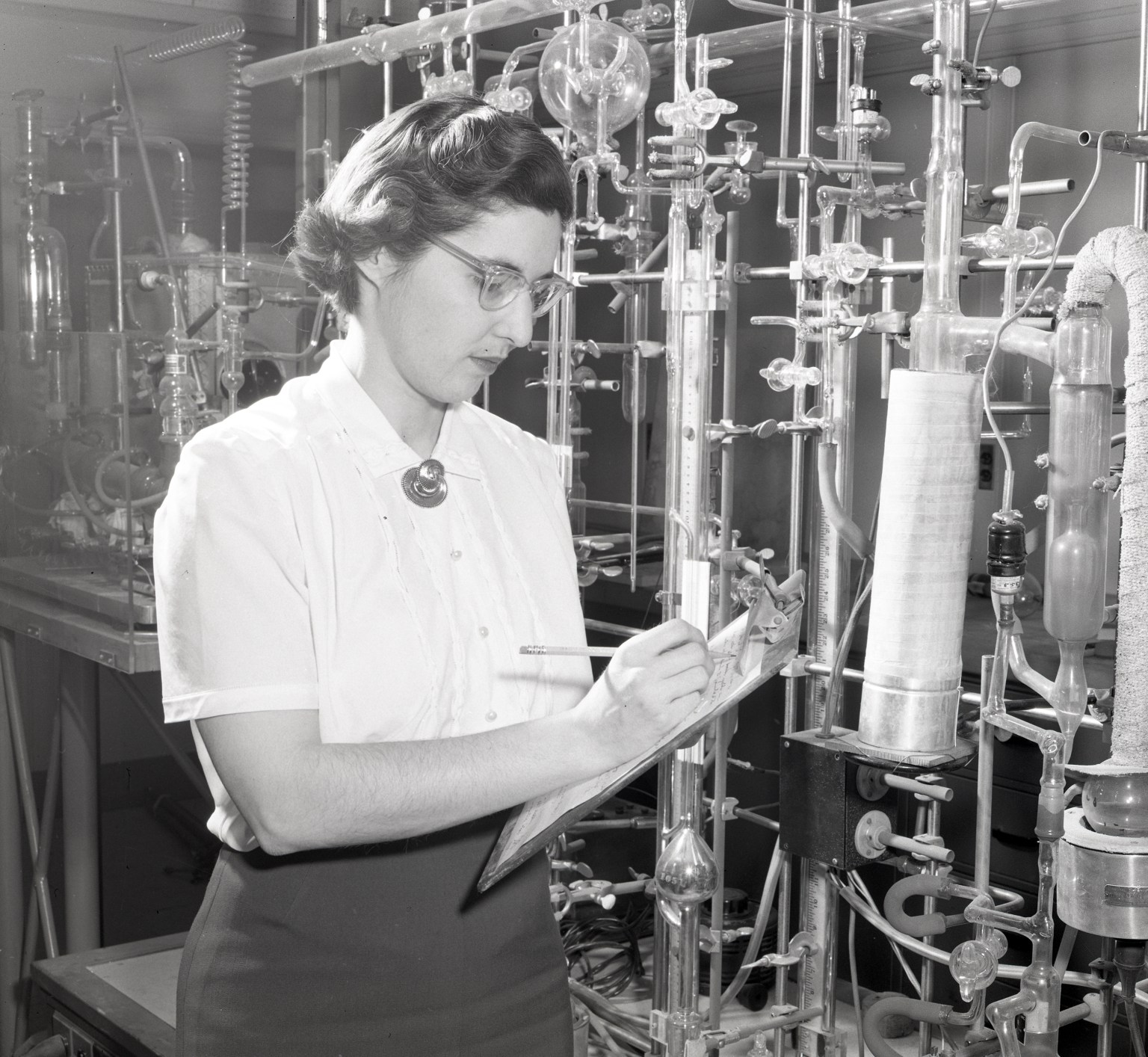Excerpt from an interview with Jo Dibella, by Jennifer Ross-Nazzal
San Jose, California
2 October 2005
Ross-Nazzal: How did you become employed by NACA?
Dibella: Well, it all started—years back we had to take a civil service test in order to work for the government, and the government had quotas from every state. So many from New Jersey, so many from New York, so many from Wyoming, and so forth, so the government had quotas. I took a test in Newark, New Jersey, and it was a general test, plus typing. Then I don’t know how many days or weeks afterwards, I got a letter from the government offering me a temporary job. Obviously I passed the tests. It was from the Social Security Board. Would I accept a three-month appointment?
I thought, “I’ll ask my parents if I should accept this offer to work in Washington D.C., a couple of hundred miles away from home.”
They said, “Yes, why not? For three months? It would be a good experience.”
Before I left home for Washington, I worked for a lawyer at five dollars a week. I accepted the offer and went by train to Washington. In those days Washington had many boardinghouses and rooming houses. I would say that most of the people who came to work from out of state lived in rooming or boardinghouses or the YMCA [Young Men’s Christian Association] or the YWCA [Young Women’s Christian Association]. That’s the way it was here in the city.
In June 1937, I rented a room in a rooming house off North Capitol Street, near the Capitol and close to Union Station, the railroad station. Commuting by trolley, I worked in the Adjudications Section of the Social Security Board located at 23rd Street and Constitution Avenue. The temporary position was Junior Stenographer at Grade CAF-2, $1440 per annum; I typed letters that lawyers wrote. After three months I was offered an extension, which I accepted.
Since my appointment was temporary, in March 1938 I accepted an offer from the Census Bureau at the Commerce Department at a salary of $1260 per annum. I left the Social Security Board and went to the Census Bureau and worked there from 1938 to 1942.
One afternoon I attended a concert at the Agriculture Department auditorium where a man who directed a choir in one of the churches in Washington, a Baptist Church, was directing a singing group. Not that they were employees there, but anyone who liked group singing could join this group. I met a girl there who was in the audience. She asked me where I worked.
I said, “I work at Census Bureau.” I was there for about three years, I guess, three or four years. “Why? Why do you ask?”
“Well,” she said, “we need secretaries where I work.” She worked in the Personnel Office. “Are you a secretary?” she asked me.
I said, “Yes, I could take dictation.”
She said, “Why don’t you come over to where I work, NACA?” I didn’t know what NACA was.
So she said, “Well, come in for an interview. I’ll introduce you to Miss Wheeler, head of the secretarial group.”
I said, “Okay, I’ll see if I can find time to come over.” The interview went well and I was hired to join the secretarial pool. There were about a half a dozen girls in the group. Then when I went to report for work, I was assigned to a newly hired engineer who had just come from Ohio. He worked at Wright Patterson Air Force Base, Ohio. He was a civilian engineer at Wright Patterson. At NACA, he was hired to handle the NACA Power Plants Committee plus a couple of its subcommittees. I worked for Mr. Thomas T. Neill for about fifteen years, taking dictation from him and at times other people, when necessary. In the meantime, while I was at—well, I should preface this. We were at Dupont Circle working in a mansion formerly belonging to the Leiter family which the government took over on Dupont Circle at Connecticut Avenue. It was a four story mansion. We had a complement of maybe fifty on the payroll. Our telephone sheet had two columns of names. [Laughs] So during that time I also took dictation from Dr. William Frederick Durand of Stanford University in Stanford, California, who was one of the main NACA Committee members.
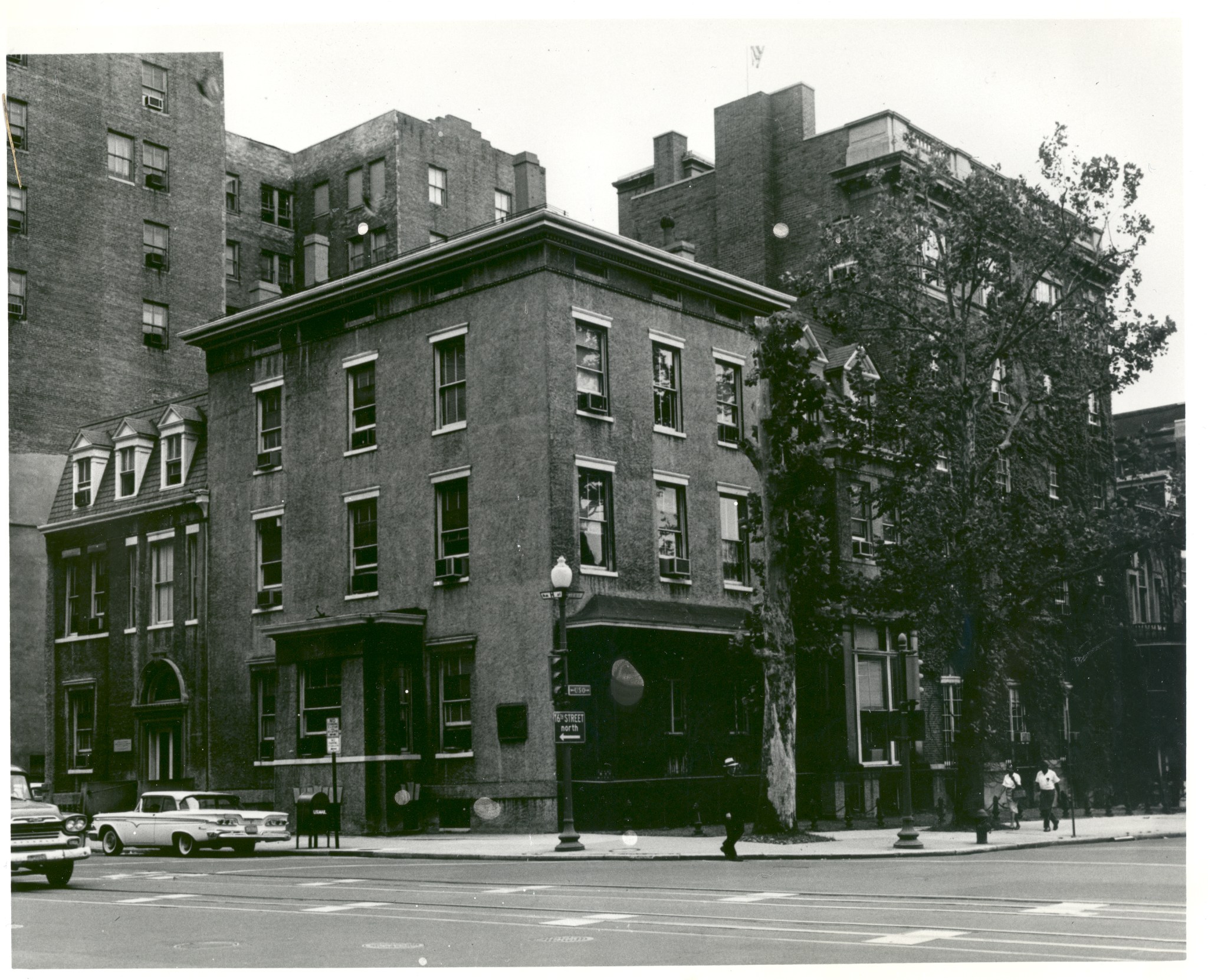
Dibella: Well, I stayed with Mr. Neill, the engineer, for about fourteen years, and I was asked one day if I would work for the Secretary of NACA. I said, “No, I don’t think I want to leave Mr. Neill. I don’t want to leave Mr. Neill. He’s been good to me, and I’ve been here so long, you know, and I like what I’m doing for him and the other group in his office.” Dr. John F. Victory, the Secretary of NACA, was the first NACA employee. Hey, I could have been up there with him, but I wouldn’t take the job. They thought I was crazy not to take it. It was a raise in pay, as well. But I stayed with Mr. Neill.
Then one day I heard that Dr. Hugh L. Dryden, who was the Director at that time, his secretary was leaving, going back—she was leaving her job and going back to Ohio to live. Mr. Neill told me they had a list of girls, secretaries, that were eligible that they would call for an interview, and in order to work for Dr. Dryden, you also had to work for the Associate Director, John W. Crowley who came from Langley Field in Hampton, Virginia. So there was Dryden, Crowley, and Victory, the three top men, okay? So he said, “Jo, I know you refused the invitations to work for Dr. Victory, and he has asked you why you didn’t want to work for him. But,” he said, “you’re on the list for this job to work for Dr. Dryden and Mr. Crowley, and when you go up there for an interview, I don’t want you to refuse it, because you’re the first one on the list.”
“Oh. Oh yes? Who did that list?”
Well, Helen did it, his secretary. She made the list up. I had the interview, not with Dr. Dryden, but with Mr. Crowley who said, after a brief interview, “You’re hired.” That’s how I got to work for these two wonderful gentlemen.
Then when Dr. James H. Doolittle would come in, he was our Chairman of the main NACA Committee. He came in and had an office they set up for him whenever he was there. From my desk and through the open door, I could see where somebody made his way up to the ninth floor by using the steps. One day, Dr. Doolittle arrived at my office. I said, “Did you walk up the steps?”
He said, “Sure.”
I said, “Well, why didn’t you take the elevator?”
He said, “I’m practicing. I’m getting my legs in shape, because I’m going to Alaska to hunt sheep.”
On one occasion, I was sent in to take dictation from him, and the telephone happened to ring, and he said, “Who is this? What do you need? Oh, okay. Well, make sure you get every name spelled correctly.” Whoever was calling him, and I don’t know who called—it could have been from a newspaper—was asking the names of his crew when they bombed Tokyo. But what stuck in my mind was when he told the caller, “You get the names spelled right,” because there were a lot of people whose last name ended with -ski; they weren’t Jones and Smith. And he spelled them all over the phone. Boy, you can’t get away with anything with this man. You’d better get the spelling right. He was very sharp, real good. But anyway, those days were wonderful. We had wonderful times, and I was happy to go to work every day, no matter what the weather was.




